I asked myself, what does that mean? The best books of all time? Best fiction? Best nonfiction? Both? From what time frame–the beginning of time–do cave drawings count? Books–are plays included, how about poems, religious tomes, children’s books, what languages, the questions were endless, with no definitive answer. The lists I saw ranged from strict literary merit, to the public’s picks. Some dealt with only English, some starting in the early 1920s, none made any sense to me.
A list like this is completely totally unequivocally subjective. True, some lists were carefully selected by people who read practically every book
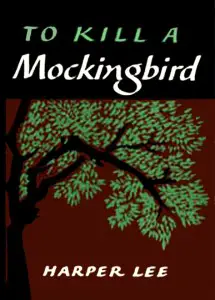
ever written. And, there were lists with recent, perhaps lightweight works, such as Twilight on them. There were many duplicated in the lists, varying in pride of place. Generally speaking, familiar authors dominated, conventional thinking prevailed. Well. My list of a mere 20 are in English, because that’s all I know, fiction, because that’s what I’ve mostly read, and within no particular time frame. The key point for my best books of all time list–compelling, can’t put down, thought provoking, enjoyable, leaves me with a lingering wonder and appreciation for the written word.
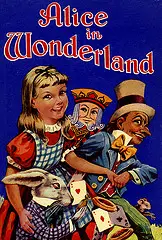
So-here’s *my* list of the top 20 best books of all time:
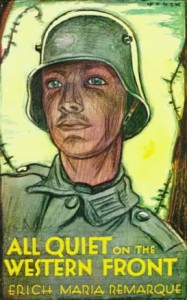
1. Alice’s Adventures in Wonderland–Lewis Carroll
2. Great Expectations–Charles Dickens
3. Pride and Prejudice–Jane Austen
4. To Kill a Mockingbird–Harper Lee
5. Tales of Mystery and Imagination–Edgar A. Poe
6. Of Mice and Men–John Steinbeck
7. Short Stories of Stephen Crane
8. Fahrenheit 451–Ray Bradbury
9. Nine Stories–J. D. Salinger
10. The Maltese Falcon-Dashiell Hammet

11. All Quiet on the Western Front–Eric Maria Remarque
12. The Big Sleep–Raymond Chandler
13. Fairy Tales of the Brothers Grimm
14. The House of Mirth–Edith Wharton
15. The Great Gatsby–F. Scott Fitzgerlad
16. The Probable Future–Alice Hoffman
17. Short Fiction of Kate Chopin
18. The Woman in White–Wilkie Collins
19. An American Tragedy–Theodore Dreiser
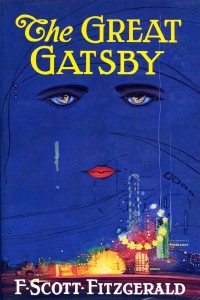
20. Mother Goose–Traditional or Elizabeth Goose
I can hear the yells, gaffaws, hisses all the way through my mac. Remember, these are from what I’ve read, what stayed with me over time.
Why no Ulysses you ask? Absolutely hated it. If I cannot understand what the writer is trying to convey, I don’t care how lovely the language, how inventive, how blah. Yes, I must be an ignoramus to not understand Ulysses. Life is too short for me to be forced to try. Wuthering Heights? Oh please! Moody, angry, prideful, love goes awry, she dies. The end.
Moby Dick? Ugh. I get the symbolism–great white whale, ok. It wasn’t necessary to bore me to tears. Hemmingway? I probably read everything by him at one time–and I thought he was the cat’s meow. Then I started looking at his women, and decided he was better off living with his cats and I was good to move on. I would be disingenuous if I added women or various cultural, ethnic, of color authors so my list looked diversefied. However, my list of best books did point out my need to read the varied talented authors I’ve missed.
So why the titles I did choose? Each had a particular effect on my psyche at one time, and most still do.
Alice in Wonderland. The most referenced titles of all time. Nope, no data to back this claim–just my observation in every every book I read–there is some kind of allusion to a part of the not so very children’s book. “mad as a hatter'” “down the rabbit hole” “mad tea party” “off with her head” “grinning like the Cheshire Cat” “as if I’d gone through the looking glass” “they’re acting like Tweedle Dum and Tweedle Dee”, “i’m late, like the White Rabbit” “drink me” “go ask Alice”–Ok maybe this is only used by the Jefferson Airplane. There are many more. See if you can come up with them. Besides the fact it has entered our subconscious, it’s an amazing story filled with puns, riddles, math,(ick) indelible characters, action, suspense, surprises, and is one of the first novels to buck social conventions, even if only from a girl’s dream. Nuf’ said.
Great Expectations left me chattering about the plot to unsuspecting people wherever I happened to be. The picture of Miss Haversham and her cake, will never vanish.
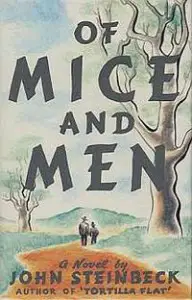
Pride and Prejudice–no, not the latest film version that makes a mockery of Austen’s intentions, but the book itself. Witty, charming, heartbreaking, risque for the times, and of course the lessons we must learn about our personal pride and prejudices towards others.
To Kill a Mockingbird–Just thinking about Bo–brings tears to my eyes. Incomparable book.
Poe. Hearts beating, a man walled up alive, a dead hypnotized fellow still speaking while decaying, a horrible disease can’t be kept a bay no matter how rich and gay, a ridiculed dwarf takes revenge, a black cat spills the beans. Perfect horror.
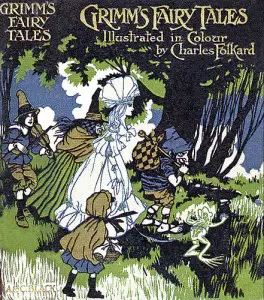
Of Mice and Men–Steinbeck is a favorite, so it was hard to choose, but I was determined that no one author steal the list, so I choose the book who tells me about the rabbits.
Stephen Crane’s short literature, and in particular The Open Boat resonates with me still. The cry of a drowning sailor haunts, “if i’m going to die, why in the name of the seven mad seas was I allowed to come this far to contemplate sand and sea” OK–done from memory, it may vary a bit from the text.
I realize that if I go through the reason for each book, it will be like writing one, so, this will do for now, I’m sure there will be questions of how I could leave such and such out, and how could I be so terrible about Wuthering Heights, and what the hell was I thinking, lol. I look forward to your best books of all time!
=====Returning some days later, after sleep and my wrists having been rested, ha, I will continue explaining my choices.
I read Fahrenheit 451 late in life, well, later than the usual high school student. I was bowled over. The book was written more than 50 years ago, and seems to be foretelling the present. A public hooked on excitement, TV, crass commercialism has no time for reading or books. Books become obsolete, then outlawed. Bradbury explains the story is *not* about censorship by the government, but how a society devolves into a place where simply owning a book is seen as a strike against society. A must read, especially in todays world of computer games, huge digital TVs, and the internet. We’re halfway to Mr. Bradbury’s future.
A Perfect Day for Bananafish, one of Salinger’s stories, lends empathy to someone who is out of step with the world because of being *too* smart.
The Maltese Falcon, The Big Sleep, and All Quiet on the Western Front are pretty much self explanatory.
Why Fairy Tales? What better pieces of literature to spark imagination as well as give moral guidance? So long as they’re not Disneyfied. They need to be read in the original non cutesy form.
The House of Mirth spoke to me as a woman–understanding that place in society where you don’t quite belong if you’re not married and not fitting into any other place either. Lovely.
Gatsby–everyone lists it, everyone likes it, does anyone know why? My reason is the ‘green light at the end of the dock’–the lure, the impossible goal just out of reach, but forever beckoning. The American Dream.
Some may find The Probable Future an odd selection-it’s recent, not as ‘literary’ as some others, but it’s magical, wonderful, optimistic with delicious characters, memorable settings, really splendiferous reading.
Kate Chopin isn’t a familiar name to some. Best known for the novel, The Awakening, and her novella The Yellow Wallpaper, her other fiction tends to slide to the side. Her stories are feminist in nature, but not overtly, and often surprise.
Wilkie Collins is known for the two novels propelling mystery fiction forward, The Moonstone, and The Lady in White. I chose the latter, because the former is a police procedural, where the Lady in White is gothic and dramatic, things I love in a powerful novel.
The murder stayed with me, from An American Tragedy-and not because of the film with Elizabeth Taylor based upon the book. It was a sad deserted place to die, on a dark lake, and the poor girl thinking her lover was going to marry her, not kill her. On a road trip I visited the lake and inn where the real murder the story was inspired by occurred.
Who doesn’t like Mother Goose? With whimsical illustrations it’s essential for learning toddlers . On another level one learns of historical explanations within the rhymes. It was the first book I read, and will remain my favorite.
Whew. Done. Don’t forget to chine in on what you think are the best books of all time..

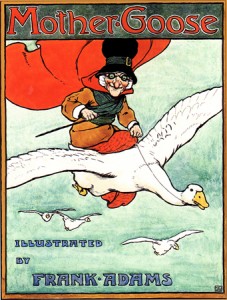
Don’t like Hemmingway? Me either. Malcolm Muggeridge wrote, “Poor Scott, poor Zelda, and poor Hemmingway – the only time he hit his mark in life it was a self-inflicted wound.” (from memory) Woo hoo! The Brits sometimes have a way with nasty.
My favourite line from Alice is the one about, ‘words mean what I want them to mean.
Bob
One I would put in my ‘list of 20’ would be Gulliver’s Travels. The part I remember most is the land that horses ruled. They had an alphabet of 22 letters and a law that no law could have more words in it than there were letters in the alphabet. Wish we in the U.S. had a law like that.
K.I.S.S.
Prying1–I have about three copies of Gulliver’s and have yet to read it–on your recommendation–I’ll put it in my to be read pile, thanks!
Bob, lol–I said something similar to my husband yesterday when discussing this list, and then felt bad, for about 4 seconds! Ha.
Love the ‘words mean what I want them to mean’. I forget who utters that.
You know, only one list out of all I googled had Alice on it? Yet many had The Wizard of Oz–which annoys me. Oz, although fun, is derivative of Alice, in so many ways. Even the scarecrow–telling Dorothy which way to travel, is direct from the Cheshire cat and Alice.
Can you tell I’m a Carrollian? Ha ha.
I like many of your choices. I’d have to add ERB’s Tarzan Of The Apes. A great adventure, even if it sometimes strains credulity.